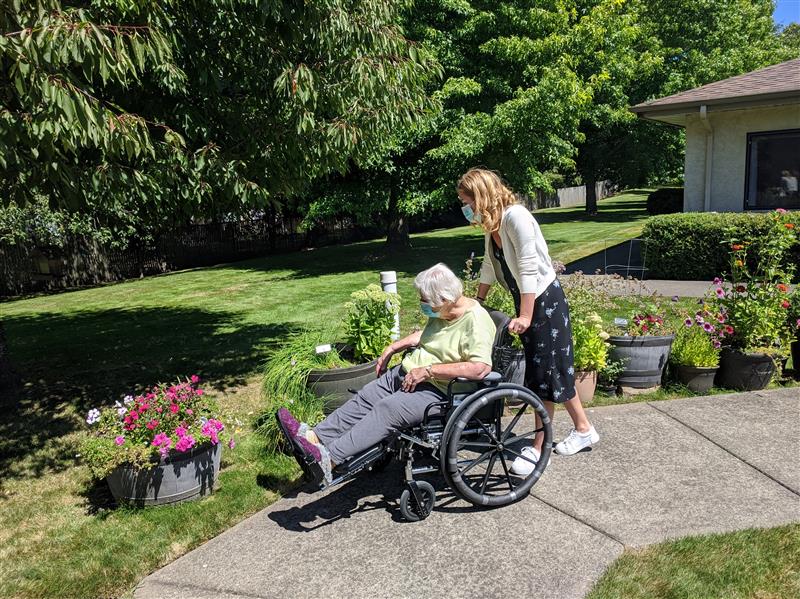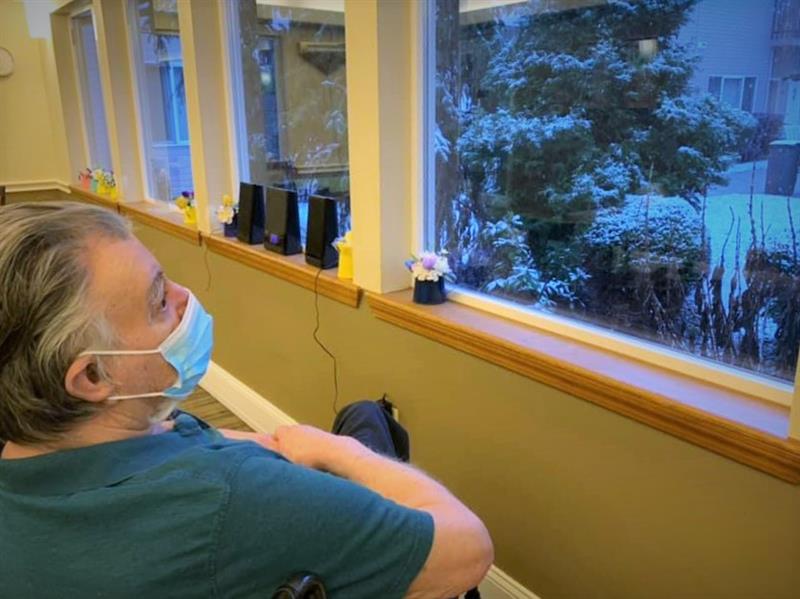Whether you are an in-home caregiver for a family member or a professional caregiver working in a nursing home setting, caregiver “burnout” is a serious issue. And no wonder. Caregiving is one of the hardest jobs out there. Not only does it require physical strength, but it also requires emotional and mental effort as well. Being a caregiver requires you to care for another person’s most intimate daily needs; it is a selfless job that oftentimes goes unrecognized.
If caregivers are not intentional about taking care of themselves, they will quickly lose all sense of balance in their lives. Fortunately, there are ways to get that balance back.
While not all of these options are always feasible, pick one or two that will work for you and focus on making them happen.
Practice Self-Care
Often those who take care of others are the least attentive to their own needs. They are so busy making sure that others are looked after that they fail to remember the basic self-care options that could help them find balance in their lives.
These self-care practices may include:
- Eating well
- Meditating
- Exercising
- Sleeping in once a week
- Meeting up with friends
- Taking consistent days off
- Reading books and watching TV
- Eating well and staying hydrated
- Enjoying a favorite drink at the end of a long day
Building self-care practices such as these into your regular routine will help you stay connected to your own life and personal needs, ensuring that you are in a better place to find balance.

A resident takes a leisurely stroll to see the flowers at Summit Place Assisted Living (Bellingham, WA)
Take Time to Reflect
Whether you prefer to record your reflections in a journal or simply sit and think, taking time to be introspective often affords you some much-needed perspective on your habits, rhythms, routines, and relationships.
When you are too rushed to reflect, you often continue far too long in unhelpful patterns without taking the opportunity to adjust; however, with a bit of time and attention focused on personal reflection, you may be able to find changes that lead to a greater sense of balance.

This resident takes a moment to reflect while also taking in the new snowfall outside of Sunnyside Assisted Living. (Sunnyside, WA)
Ask for Help
Care-giving is time-consuming and emotional work, and sometimes you are so wrapped up in getting through each day that you forget to ask for help. You do not need to do it all yourself, and reaching out for help is not a weakness.
Any of the following could be available to help:
- In-home nursing care services
- Friends and family members
- Support groups
- Nursing homes
- Respite services
Take Advantage of Respite Services
Respite Care exists to aide caregivers who need a short-term break. In addition, individualized respite care services are available for those who simply require a bit more healing time before heading home after a hospital stay. In the case of short-term respite stays at an assisted living facility, the individual is assessed by a nurse and provided the same high quality care as those residing at the facility long term.
Different types of respite care exist to meet different needs:
- Respite care at home
- Respite care live-in facilities
- Adult day-care center programs
By taking advantage of respite services, caregivers will be able to carve out some time to rest, recharge, refuel, and be ready for a new day.
Balance can be difficult to achieve alone. Fortunately, you are not alone in this.

A beautifully appointed respite room at Spruce Point Assisted Living (Florence, OR)
We Can Help
Nightingale Healthcare‘s assisted living facilities offer respite care in a safe, knowledgeable, and compassionate environment with 24/7 nursing services and individualized care plans for your loved one when the demand of at-home care becomes too much.
If you have questions or would like to hear more about our communities that offer respite care services, please contact us today by calling 360-656-6609 or visit us online at https://nightingaleliving.com.
Short-stay respite services are currently available at the following Nightingale Healthcare assisted living communities:
Summit Place Assisted Living (Bellingham, WA)
Sunnyside Assisted Living (Sunnyside, WA)
Fox Hollow Residential Care & Independent Living (Eugene, OR)
Spruce Point Assisted Living & Memory Care (Florence, OR)
